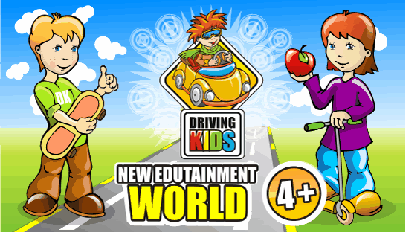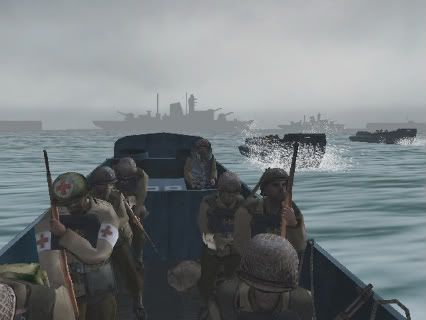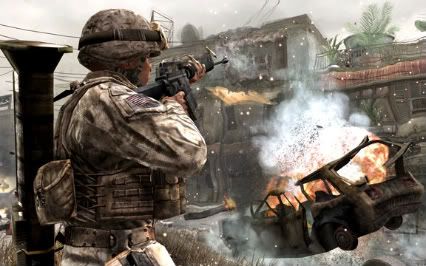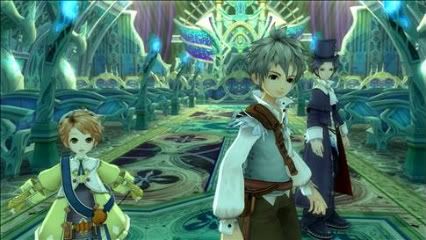A Link To The Past
 For those who are passionate about video games there are few genres that elicit quite the same level of contempt as the much maligned ‘edutainment’ game. This is not without good reason. Although most would be unable to recall the last time they purchased a product bearing that phrase that promises only half of what it suggests, we have undoubtedly tried at least one in the salad days of our youth. Perhaps when in a classroom, the lone antiquated PC in the corner provided the only alternative to having to actually study, for example. This rejection of associating learning with video games is completely understandable, but the potential that games have to expand our minds and increase our knowledge is something that shouldn’t be shied away from. Instead through providing an enjoyable environment in which we can develop an interest in learning, educating the player is something which could enhance the experience rather than detract from it.
For those who are passionate about video games there are few genres that elicit quite the same level of contempt as the much maligned ‘edutainment’ game. This is not without good reason. Although most would be unable to recall the last time they purchased a product bearing that phrase that promises only half of what it suggests, we have undoubtedly tried at least one in the salad days of our youth. Perhaps when in a classroom, the lone antiquated PC in the corner provided the only alternative to having to actually study, for example. This rejection of associating learning with video games is completely understandable, but the potential that games have to expand our minds and increase our knowledge is something that shouldn’t be shied away from. Instead through providing an enjoyable environment in which we can develop an interest in learning, educating the player is something which could enhance the experience rather than detract from it.
 It can be argued that one of the first, massively successful games that served to educate as well as entertain was Medal of Honor: Frontline. Though there had been other WWII games before it, the graphical prowess of the PS2 meant that for the first time console gamers were getting an experience that had a sense of authenticity and immersion. In particular the haunting opening scene that replicated the experience of an Allied soldier as he attempted to storm the beaches of Normandy on D-Day was praised by gaming journalists and the mainstream press alike as a way for the young people to get a sense of what it was like on that fateful day. It’s true that both Saving Private Ryan and Band of Brothers had done much the same thing already, but as a console game it opened up the experience to an entirely different audience. Through its use of archive footage from the time it not only attempted to demonstrate what it was like at the time, but to put it into some kind of context of how the war was being conducted. The dedications to the people who had lost their lives in the conflict in the closing credits served as an important reminder that this was more than just a game.
It can be argued that one of the first, massively successful games that served to educate as well as entertain was Medal of Honor: Frontline. Though there had been other WWII games before it, the graphical prowess of the PS2 meant that for the first time console gamers were getting an experience that had a sense of authenticity and immersion. In particular the haunting opening scene that replicated the experience of an Allied soldier as he attempted to storm the beaches of Normandy on D-Day was praised by gaming journalists and the mainstream press alike as a way for the young people to get a sense of what it was like on that fateful day. It’s true that both Saving Private Ryan and Band of Brothers had done much the same thing already, but as a console game it opened up the experience to an entirely different audience. Through its use of archive footage from the time it not only attempted to demonstrate what it was like at the time, but to put it into some kind of context of how the war was being conducted. The dedications to the people who had lost their lives in the conflict in the closing credits served as an important reminder that this was more than just a game.
 Now it is difficult to look back on the genre with the same sense of awe. Following the mass saturation of the WWII shooter genre, consumers became tired of fighting the same campaigns. The archive footage which had once inspired, no longer held the same emotional leverage. With each take on the most devastating conflict in history, the necessary ‘gamey’ aspects of the mechanics such as health packs and regenerative health began to grate more and more. People grew tired of WWII and so the Science Fiction shooter rose in popularity as did the modern military shooter. Still, it is important to remember that they educated many people about that era which can only be seen as a positive. For all the improvements in graphical detail, it is hard to suggest that a game such as Modern Warfare 2 does the same thing, with its emphasis on more fantastical action movie scenarios.
Now it is difficult to look back on the genre with the same sense of awe. Following the mass saturation of the WWII shooter genre, consumers became tired of fighting the same campaigns. The archive footage which had once inspired, no longer held the same emotional leverage. With each take on the most devastating conflict in history, the necessary ‘gamey’ aspects of the mechanics such as health packs and regenerative health began to grate more and more. People grew tired of WWII and so the Science Fiction shooter rose in popularity as did the modern military shooter. Still, it is important to remember that they educated many people about that era which can only be seen as a positive. For all the improvements in graphical detail, it is hard to suggest that a game such as Modern Warfare 2 does the same thing, with its emphasis on more fantastical action movie scenarios.
 There couldn’t be a more different game to Medal of Honor, but Eternal Sonata bore the same sincere desire to educate the player about a subject the development team felt passionate about.
There couldn’t be a more different game to Medal of Honor, but Eternal Sonata bore the same sincere desire to educate the player about a subject the development team felt passionate about.
As director Hiroya Hatsushiba put it: “People who play games and people who love classical music are not necessarily sharing [the] same type of interests. Most people in Japan know the name of Chopin; however, most of the people who know of Chopin think he is just some kind of a great music composer without knowing any more about him. Most of them have heard Chopin’s music but not a lot could put his name to it immediately. By creating a colorful fantasy world in Chopin’s dream, I was hoping that people would get into this game easily and also come to know how great Chopin’s music is.”
The game is about as traditional a Japanese RPG as you could imagine, but that is a framework for a genuine passion about the man’s life on which the game is based. In fact this desire to educate the audience about Chopin is almost a little too earnest. Between chapters the game displays lengthy passages on periods of Chopin’s life and how the events that shaped his life inspired the music that he created. They are incredibly poignant, touching revelations about a fascinating man, and the game does at least attempt to make the parts of the game a reflection of the information which it gives about Chopin. It is unfortunately a rather clumsy way of educating the gamer and the educational aspect is jarringly separated from the gameplay. One of the main reasons it still succeeds is that the soundtrack is obviously very powerful. I would be surprised if anyone who played and enjoyed the game didn’t have a greater respect and appreciation for his music after they had finished it.
The problems that are posed by choosing to base a game on a historical figure, period or conflict is clearly leading developers to ignore the potential it has. They run the risk of alienating, offending or patronizing gamers and by basing it on history the natural assumption is that it constrains them in some way. Whatever kind of game Six Days in Fallujah was going to be, and may turn out to be if it is released, its reception before it was even seen by the public has proved that there are significant challenges to setting a game within a real, historical context. In fact, with a more creative mindset a lot more could be done to educate us in an entertaining way. That doesn’t include switching the name of Iraq to a generic sounding fictional Middle-Eastern country in order to avoid controversy.
 Make a dating simulation about the life of Van Gough, a train simulator game about the Crimean War, a Harvest Moon game set in the Middle Ages, or an Ace Attorney game in The Hague. Educate and challenge us. The fact that I know more about the history of Ivalice than I do about the country in which I was born, Singapore, is not something of which I am proud.
Make a dating simulation about the life of Van Gough, a train simulator game about the Crimean War, a Harvest Moon game set in the Middle Ages, or an Ace Attorney game in The Hague. Educate and challenge us. The fact that I know more about the history of Ivalice than I do about the country in which I was born, Singapore, is not something of which I am proud.





The series of games that educated me the most throughout my years as a gamer was the Civilisation series. I’m not sure whether I can entirely give Civ the credit for my interest in history, seeing as it’s something most my family members have an interest in too, but it certainly helped.
The reason Civilisation is so good at this, is that most of the historical detail is optional and not pushed into your face. If as a gamer you simply want to look at the mechanical gamey advantages of for instance a world wonder, that’s fine and entirely possible. But if you have a passing interest in why the Hanging Gardens increase the health in your cities, you can read all about it in the Civilopedia. Similarly, reading the background information for the different leaders can give you insights into their leadership style (Genghis Khan for instance, does not make a very good neighbour).
Civ is such a broad canvas, it’s pretty much impossible not to inhale some facts into your brain whilst playing through. You’ll realise how important aquaducts and irrigation were to the development of young nations and come to understand how radically different cultures sprung up based on the natural resources that inhabited their lands. It’s simply a brilliant fusion of crafted game mechanics and historical scope.
I have to agree with you there, I learnt a ridiculous amount by playing Civ 1 in my youth.